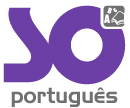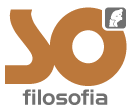Vocabulário de Natal (continuação)
Ideias comumente usadas pelas pessoas nesta época - Things people speak at Christmas
O natal está chegando. Christmas is coming.
Eu adoro a época de natal! I love Christmas time!
O que você quer ganhar de natal? What do you want to get for Christmas?
O que você vai pedir ao Papai Noel? What are you going to ask Santa Claus for Christmas?
O que você pediu para o Papai Noel? What did you ask Santa for?
O papai noel existe/não existe. Santa Claus exists/doesn´t exist.
Nós vamos passar o natal no exterior. We´ll spend Christmas abroad.
Eu costumo ver minha família no natal. I usually see my family at Christmas.
Nós nos reunimos para comemorar o natal. We get together to celebrate Christmas.
O que você vai fazer no recesso de natal? What are you going to do on the Christmas break?
Estamos fazendo as compras de natal. We´re doing the Christmas shopping.
É o espírito de natal! It’s the Christmas spirit!
Vamos fazer uma ceia de natal. We´ll hold a Christmas dinner.
O Papai Noel lhe trouxe tudo que você pediu? Did Santa bring you everything you asked for?
Saudações - Greetings
Merry Christmas! Feliz Natal!
Happy Christmas! Feliz Natal! aqui!
Happy Holidays! Boas Festas!
Seasons Greetings! Boas Festas!
Merry Christmas and a Happy New Year! Feliz natal e feliz ano novo!
Merry Christmas and a happy New Year everyone! Feliz natal e ano novo a todos!
Coisas que as pessoas fazem no Natal – Things people do at Christmas
montar uma árvore de natal – to put up/ to trim a Christmas tree

cantar músicas natalinas – sing Christmas carols
fazer compras de natal – go Christmas shopping
se endividar – get into debt
presentear – give presents
receber presents – get presents
abrir presentes – open up presents
ir à missa do galo – go to midnight mass
ceiar/ter ceia de Natal – have Christmas dinner
Christmas... ... Is the Christian celebration of the birth of Jesus Christ which takes place on December 25. Before Christmas, in the UK and US, people send Christmas cards to their friends and family showing traditional Christmas symbols such as Santa Claus, angels, holly and snowmen. Shops are decorated for Christmas from September and in the weeks before Christmas people do their Christmas shopping, buying Christmas presents for friends and family. In schools in Britain at the end of the Christmas term children often sing carols, decorate Christingle oranges and perform a nativity play representing the birth of Christ which parents are invited to watch. A few days before Christmas, families decorate a Christmas tree, a fir tree covered in lights and colourful decorations, in their home. Many people go to midnight mass in church on Christmas Eve. Young children believe that Santa Claus will bring them presents during the night and they usually wake up to find a stocking, a long sock filled with small presents, by their bed. Presents wrapped in coloured paper are put under the Christmas tree on and Christmas morning many families open their presents together. Families try to get together at Christmas and celebrate with special food. In Britain people eat mince pies and Christmas cake, and in the US they make Christmas cookies. They share a special meal, Christmas dinner, which in Britain usually consists of roast turkey or goose and vegetables, followed by Christmas pudding, a rich pudding made with dried fruit that is served with brandy burning on it and eaten with brandy butter. People pull paper crackers which make a loud bang and contain paper hats, jokes and small toys. On the day after Christmas, called Boxing Day in Britain, many sporting events take place, and in the US large shops begin their sales. From: KEITH BROWN (Org.). Oxford Guide to British and American Culture for learners of English. Second Edition; Oxford: Oxford University Press, 2005. 534 p. pages 84-85 |





























